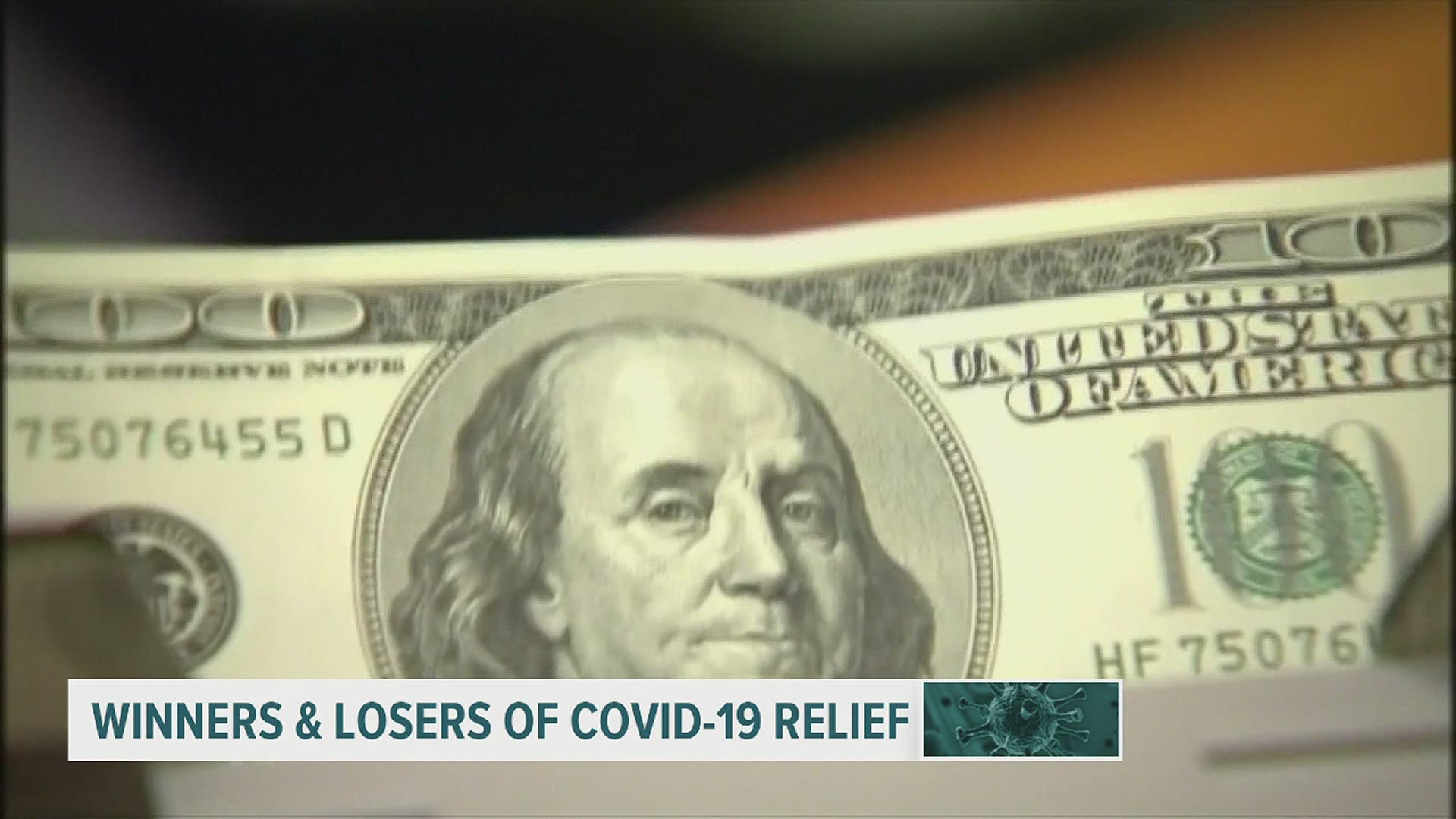The federal COVID-19 relief package is bringing desperately needed help for small businesses and people on unemployment as the federal government also manages to avoid a shutdown. But the President's delay in signing the measure will also delay unemployment checks going out, possibly for weeks.
Unemployment
The extension of the Federal CARES Act extends two key unemployment programs: the pandemic unemployment assistance program and the pandemic emergency unemployment compensation program. Those programs assist more than a half million people in Pennsylvania. It also restarts the federal pandemic unemployment compensation program which will provide an extra $300 to most claimants in addition to their weekly benefits, albeit the $300 is a less generous amount than in the spring.
The money is expected to be delayed due to the delay in passing the measure.
"Labor and Industry is eager to begin making payments for these programs because we know that so many Pennsylvania families rely on them. But, first we must receive guidance and approval from the Department of Labor before we can begin making these payments" said Jennifer Berrier, acting Secretary of the PA Dept. of Labor and Industry. "Unfortunately delays in getting the Federal CARES Act extension signed into law has pushed back the arrival of this guidance and this might mean there is a few weeks until we can issue payments to claimants again for these programs."
Paycheck Protection Program
Another round of the Paycheck Protection Program (PPP) is set to arrive for businesses amounting to $285 billion in aid. That amount is less than the $525 billion approved in the first round of PPP.
The federal paycheck protection program was designed to provide a direct incentive for small businesses to keep workers on the payroll with a promise to forgive loans as long as owners followed specific guidelines.
After complaints that the first round of PPP was unregulated and benefitted too many big businesses, Congress made changes to the program to guarantee the funds to more small businesses in this next round. Lawmakers have established new rules that cap the loans at $2 million per business, compared to $10 million previously. Applicants must also have less than 300 employees and prove at least a 25% drop in sales from the same time period in 2019. Unlike last time, publicly traded companies are also not eligible and $12 billion has been set aside specifically for minority-owned businesses.
Businesses can apply for the new round of PPP loans even if they have received one before.
Read the story of one local business who benefitted from the first round of PPP loans here and find a list of the names of other businesses in our area who received PPP to stay afloat.
Stimulus Checks
The delay in passing COVID-19 relief and avoiding a government shutdown was caused much in part over a disagreement in the amount of money Americans should receive in stimulus checks. President Donald Trump unexpectedly sided with Democrats who argued $600 was not enough money and that $2,000 checks should be issued instead.
Despite the debate, President Donald Trump ended up signing the $900 billion pandemic relief package Sunday which includes another $1.4 trillion to fund government agencies through September and contains other end-of-session priorities such as an increase in food stamp benefits.
Monday, the House moved to pass a new measure to increase the stimulus to $2,000, forcing the Senate to consider the measure on Tuesday who stalled the measure. However, the roadblock mounted by Senate Majority Leader Mitch McConnell may not be sustainable as pressure mounts. Trump wants the Republican-led chamber to follow the House and increase the checks from $600 for millions of Americans. A growing number of Republicans, including two senators in runoff elections on Jan. 5 in Georgia, have said they will support the larger amount. But most GOP senators oppose more spending, even if they are also wary of bucking Trump.
Currently, only the $600 stimulus has been approved for adults with an income up to $75,000 based on 2019 earnings. Adults with dependent children will receive $600 per child.
Read more about how the COVID-19 relief bill assists Americans here.
Meantime, business owners such Corey Allen of the CrossFit Bat Cave in York remain frustrated as Pennsylvania gyms and restaurants remain under restrictions that do not allow any indoor services through January 4th.
"I haven't paid myself in 8 months with just trying to keep the lights on," said Allen, who said he is now transitioning his business online and conducting personal sessions as his gym is unable to operate.
Allen pushed for lawmakers to take more action to aid small businesses as he also asked for more transparency over how decisions are being made especially when determining what businesses are and are not deemed essential.
"What it seems to me, being a small business owner, is that everything currently is not conducive to small businesses staying afloat. It's geared more towards large corporations. And, that's kind of what makes me angry," he said.
Allen noted that if nothing changes it will be hard to keep his business open through 2021, adding that in the fitness industry January through spring is when most business is conducted as people work on their New Year resolutions.
"We don't even know what's going to happen next. We can't even plan for the future because we have no idea what the government's doing and where they're going," he said.

